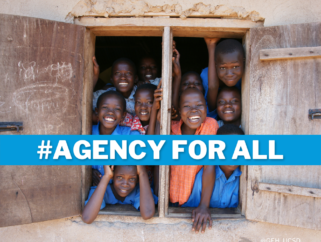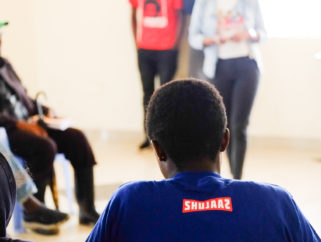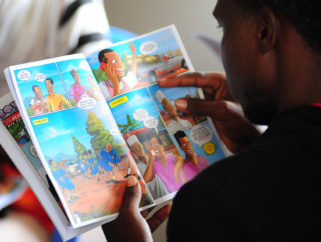‘EMERGENCY SEX’: How Kenyan boys rank their relationships [ARCHIVE]
- Sex & Health
- 26 Jan 2016
Cate and Symo have been together for a few months. So far, their relationship has been great and Symo thinks he may have found ‘The One’. Now that they’re going steady Cate no longer thinks it’s important for them to use condoms. Symo welcomes the idea.
Symo’s other girlfriend, Joy, is a more casual relationship (aka his ‘Plan B’). Joy uses an implant. So that means no more condoms, no more buying e-pills. He’s living the dream.
Like Symo, many boys in Kenya are simultaneously dating several girls. In July 2016, Well Told Story’s (Shujaaz Inc) research team spoke to young Kenyan men to better understand their views on relationships and contraception. They learned that a boy’s peers judge his masculinity by how many girls he is sleeping with simultaneously. And not all of the girls a boy sleeps with are treated the same – there appears to be a ‘relationship hierarchy’ that is widely accepted and used by Kenyan boys to make sense of their sex lives.
Each of the girls fills a certain role from ‘The One’ (marriage & mother material) to a one-off hook-up for ‘emergency-sex’. The place in the girlfriend-hierarchy determines which contraception method a girl is ‘allowed’ to use. A casual hook-up can use whatever contraception she likes as she does not need to carry his child one day – it is better for him that she doesn’t get pregnant because abortions are costly. He would prefer her to use long-acting methods or daily pills as these do not interfere with his pleasure and ensure he does not have long-lasting regrets.
‘The One’ might only be allowed to use a condom once in a while (and only if the boy buys it!) or the emergency pill. She cannot even think of using long-acting methods because it is feared that the ‘dangerous chemicals’ in contraception (including in condoms) could make her infertile. Not providing her husband with a child would cast a shadow on his masculinity, which according to many boys in the Shujaaz audience would be a disaster.
With an ‘emergency-sex’ girl, things become more complicated because a boy has to at least consider HIV/STI risks, but in most cases one-off sex is a result of a party and alcohol and drugs can interfere with rational thinking. And after all, it is a one-off encounter – he might never see this girl again, so it doesn’t matter what she thinks of him.
The fact that one boy’s ‘the one’ could be another boy’s casual girl or vice versa adds complexity to the situation. Boys do not seem to be bothered by such cross-dating, yet girls might be using the fact that they also have multiple boyfriends as a loophole that allows them to use contraceptives. In our studies, we met girls who were simultaneously casual girlfriends, one-off and ‘the one’ – all to different boys. Many of these girls with multiple partners were ‘bullet-proof’ – often using a long-acting method AND a condom for double-protection — unlike their counterparts who only dated one boy they were planning to marry.
So ironically, this relationships hierarchy leaves the most important girl, like Cate, the most vulnerable because with her, boys will not use any form of contraception, making her the most disadvantaged when compared to the casual and the one-off girl. What is also ironic is that girls have a similar view: that contraceptives are only used by girls who are not loved or trusted enough and so unprotected sex is the first step to a marriage proposal.
“… some of our girlfriends ask us not to use condoms after months of dating.”
So, what will be the ending to Cate and Symo’s story? Cate will try to figure out how to use safe days while Symo masters withdrawal (their preferred methods) while they try to achieve their dreams before they marry. Or they might get a kid when they are both 17 and have to put their lives on hold. Or they might both get infected with HIV because of Symo’s need for emergency sex. Anything is possible – their paths through life will be determined by their own choices.
Author: Gertrude Bosire (WTS Research Associate)





![Men Stand Up: young men’s stories of love, sex & contraception [ARCHIVE]](https://www.shujaazinc.com/wp-content/uploads/2019/12/DSCF5882-e1580146866544-321x242.jpg)